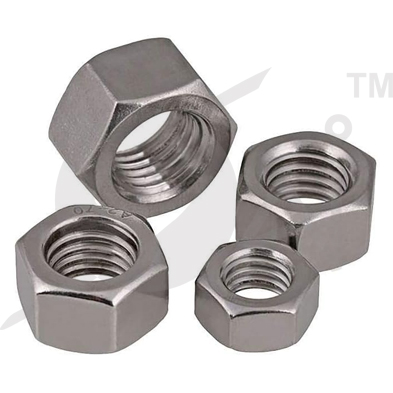
The term "SS hex nut" typically refers to a hexagonal nut made from stainless steel (SS). Stainless steel is a corrosion-resistant alloy, making it suitable for various applications where exposure to moisture or corrosive environments is a concern.
Here are some common details about SS hex nuts:
Material: Stainless steel (SS), which is an alloy primarily composed of iron, carbon, chromium, and sometimes other metals.
Shape: Hexagonal (six-sided), allowing for easy gripping with a wrench or socket tool.
Thread Size: The thread size of the nut will vary depending on the application. Common thread sizes include metric (e.g., M6, M8, M10) and imperial (e.g., 1/4", 5/16", 3/8").
Thread Type: The threading of the nut can be coarse or fine, depending on the specific requirements of the application. Coarse threads are more common in general-purpose applications, while fine threads are often used in situations where more precise adjustments are needed.
Grade: Stainless steel nuts can come in different grades, which indicate their strength and resistance to corrosion. Common grades include 304 (most common, suitable for general use), 316 (higher corrosion resistance, suitable for marine environments and food processing), and 18-8 (similar to 304, often used interchangeably).
Finish: The surface of the nut may have a polished, brushed, or matte finish, depending on the manufacturer and application requirements.
Standards Compliance: SS hex nuts may conform to various industry standards such as ASTM (American Society for Testing and Materials) or DIN (Deutsches Institut für Normung - German Institute for Standardization).
Applications: SS hex nuts find application in a wide range of industries including construction, automotive, aerospace, marine, and manufacturing, wherever a combination of corrosion resistance, strength, and durability is required.